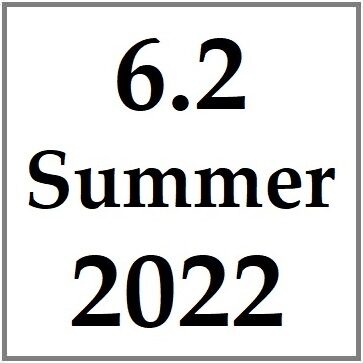Reflections from September 2021
Kelly C. George
Keywords: podcasting; parenting
Categories: Parenting and Possibility in Impossible Times; Arting/Crafting/Making in a Crisis
The call for this issue of JOMR asked that writers “think through how increased carework has shaped your writerly life during COVID,” including “the barriers you face.” Lack of time, lack of energy, those can be very real barriers to our intellectual life. But not feeling like myself because the world has not been itself—because the people I’m surrounded by most days call me Mom and not Dr. George—feels like the bigger barrier to writing during COVID times.
It has been 18 months since I started recording my thoughts during the Spring 2020 lockdown, in five audio shorts I called Teaching from Home. It is very much a time capsule from that spring, showing how I was thinking and coping at the time, teaching college students remotely while caring for my then four- and six-year-olds at home.
“Make something,” my mentor had said, after patiently listening by phone to my lament that the pandemic had flipped the world on its side as well as my roles in it. Part-time mother, full-time professor had become full-time mother, part-time professor. Of course, I am never not a mother, but the physical and emotional labor of 24/7 caregiving impacted my identity as much as my “productivity” time.
My husband and I split the labor the best we could in those early months. I had mornings in the guestroom to get done what I could before I was on kid duty at noon.
At 11:45am on March 31, 2020, I jotted down some notes, pressed Record on my phone, and tried to string together four or five ideas that fit on a Post-It. Inspired by playwright Sarah Ruhl’s book on motherhood and theater, 100 Essays I Don't Have Time to Write (2014), I set out to do something that could only ever be imperfect: hold on to my ideas as if they mattered.
Listening back now, I have to admit that I cringe in some places. Am I always so earnest, or just during pandemics? Perhaps when we look back at ourselves living on the cusp of history as we were in March 2020, we can’t help but cringe a bit. For all we didn’t know. I listen back to myself and feel exposed by my hunt for meaning during this time. I can’t defend or explain my concerns in these recordings except to say they were true to the moment.
But what strikes me most in listening back to Teaching from Home is how intact my intellectual identity seems in comparison to today. In these recordings, I see myself as a thinker and a writer. I have no hesitation in putting myself into conversation with Virginia Woolf or Rebecca Solnit. And now, writing from September 2021, I have just returned to teaching in person again, feeling less sure than ever of how to contribute, given that I have spent more hours of each day on caregiving this past year-and-a-half than almost any other time in my life. Maybe pandemic parenting is best thought of as akin to maternity leave. I should expect reentry to be slow. Expect brain fog. Expect to devote more time to self-grooming and less time to preschool mathematics. Expect a crisis of confidence. Because if I’m honest, I felt that crisis on the other side, too. Would I be able to guide my kids as well as their school teachers had? And now, returning to the college classroom I feel the same self-doubt. Will I be able to guide my students into the world of ideas when I feel so preoccupied by domestic life?
In my first recording, “Being in the Band: On Teaching During the Pandemic,” I introduce an early-pandemic meme that uses an image from the film Titanic (1997) to represent the sinking ship of higher education. At the time, I feared for my job and for my student’s futures. I’m not sure if we’re on “the other side” of that yet, but my institution has at least persisted. And so I don’t feel as panicked about the fate of our institutions as I did then, but I’ll pick up the Titanic metaphor a different way of writing from 18 months on.
In “making something” as my mentor suggested, I created a little lifeboat for my intellectual identity. I saved something worth saving. And I’m glad to look back on this person who believed that ideas were so precious. In at least that one way, she may have been onto something. . .
References
Ruhl, S. (2014). 100 essays I don't have time to write on umbrellas and sword fights, parades and dogs, fire alarms, children, and theater. Farrar, Straus and Giroux.
Bio
Kelly C. George, Ph.D. has been employed as a toy store clerk, stage actor, yoga instructor, and associate professor of communication.
